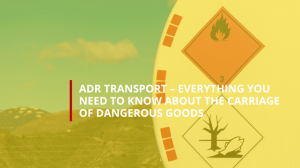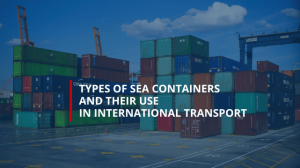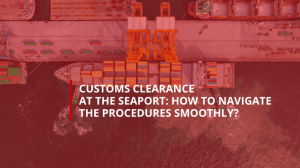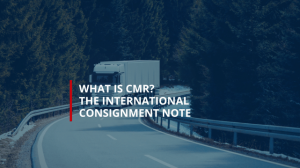

14/04/2025
Types of sea containers and their use in international transport
Types of sea containers and their use in international transport
Maritime transport plays a key role in international trade, and shipping containers are its backbone. Standardized containers enable the safe and efficient transport of various types of cargo, from bulk goods to food products requiring precise temperature control.
However, choosing the right container matters not only from a logistics perspective but also in terms of customs procedures. Let’s take a look at the types of containers used in international transport and what to consider during customs clearance.
Main types of shipping containers
Standard containers (Dry Van, DV)


High Cube containers (HC)


Refrigerated containers (Reefer, RF)


Open Top containers (OT)


Flat Rack containers (FR)


Open Side containers (OS, Side Door Container)


Tank containers (Tank Container, TC)


Customs clearance and container selection
Choosing the appropriate container type is crucial for successful customs clearance. Goods subject to additional regulations, such as food, chemicals, or building materials, require not only specific documents but also transport adapted to international standards.
Examples of required documents:


Frequently asked questions (FAQ)
What are the most commonly used containers in maritime transport?
The most popular are standard Dry Van (DV) containers and their extended versions, High Cube (HC). They are used in over 80% of sea freight shipments.
Can I transport frozen goods in a regular container?
No, for that purpose you need refrigerated containers (Reefer, RF), which have built-in temperature control systems.
Can all containers be used for road transport?
Not all – some oversized containers (e.g. Flat Rack) may require special permits and transport arrangements.
Summary
Container transport is the cornerstone of modern logistics. Choosing the right container not only simplifies customs clearance but also ensures the safety of the cargo. It is essential to consider not only logistics but also customs requirements already at the planning stage.
Do you have a shipment that needs customs clearance? We’ll take care of everything – from documents to logistics. Contact PKS International CARGO S.A. to avoid delays and procedural issues.
NEED HELP WITH PORT CLEARANCE?
GET IN TOUCH WITH OUR CUSTOMS AGENTS IN GDYNIA:
CUSTOMS AGENCY GDYNIA
ul. Janka Wiśniewskiego 31/126,
81-156 Gdynia
+48 58 621 32 21
ac.gdynia@pkscargo.pl





